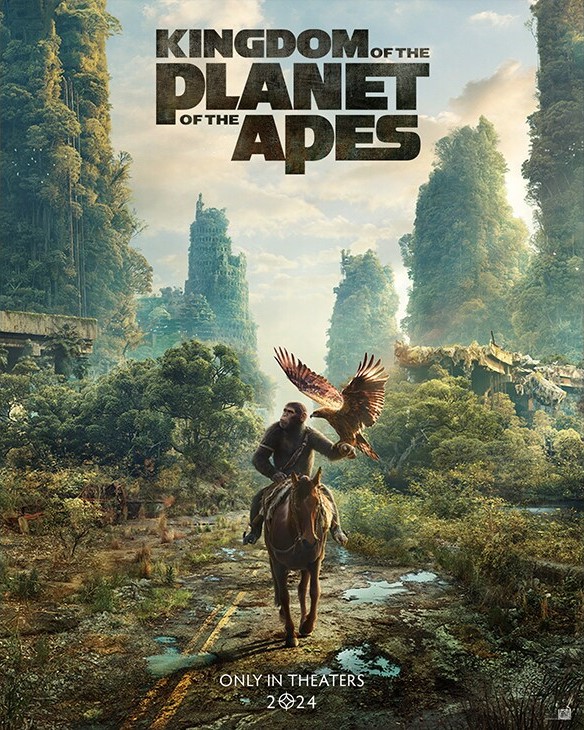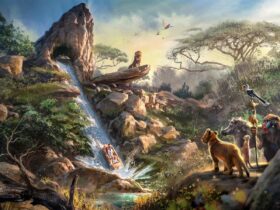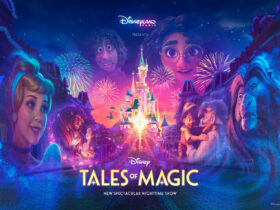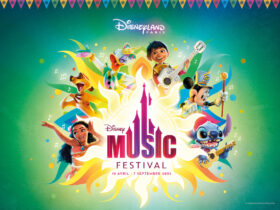Several generations after the reign of Caesar, a young ape embarks on a perilous journey that will lead him to question the past and make choices that will define the future of apes and humans alike.
To be honest, I was as apprehensive about this film as I was looking forward to it.
Planet of the Apes: Supremacy was a fine conclusion to a largely underrated trilogy, leaving the gap with the 1968 film to the imagination of the viewer. And then, with Disney’s acquisition of Fox, a sequel was announced, much to the fear of fans.
2hrs 25mins later, I came out feeling generally reassured, and here’s why.
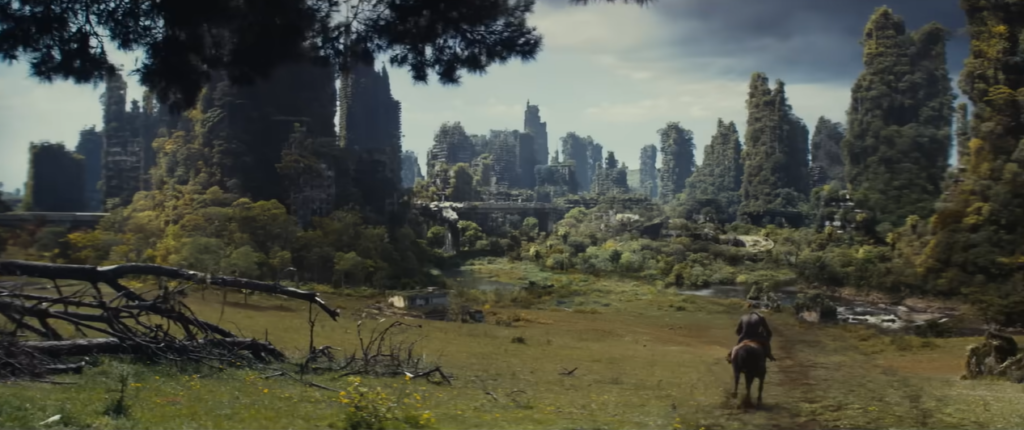
Planet of the Apes: A New Era
This Kingdom presents us with a world in the throes of recomposition; the apes are definitively the masters, and the world of humans is gradually disappearing – even from the landscape. Gone is the greyness of the previous films; colours are everywhere, green and yellow, and there’s hardly any drooling.
In fact, one of the fears was that the technique used to make the apes would be less meticulous than in the last trilogy, which shone with the precision of its animation. It’s almost as beautiful (the wild animals look a little too digital), with incredible attention to detail on the effect of water on the primates’ coats.
A hyphenated, or rather dotted, sequence
It’s hard to move on from a character as incredible as Caesar, brilliantly played in his day by Andy Serkis. Yet Noa, the new main protagonist, has a lot to offer. Very clichéd at first, he reveals a subtlety that makes him increasingly interesting and, above all, relevant to the saga. He may look like him, but he’s no Caesar, nor is he like the apes in the 1968 film; in fact, he’s a daring in-betweener that we’re not used to seeing these days. We can’t wait to see how he develops in the future, and congratulations to Owen Teague, who plays him.
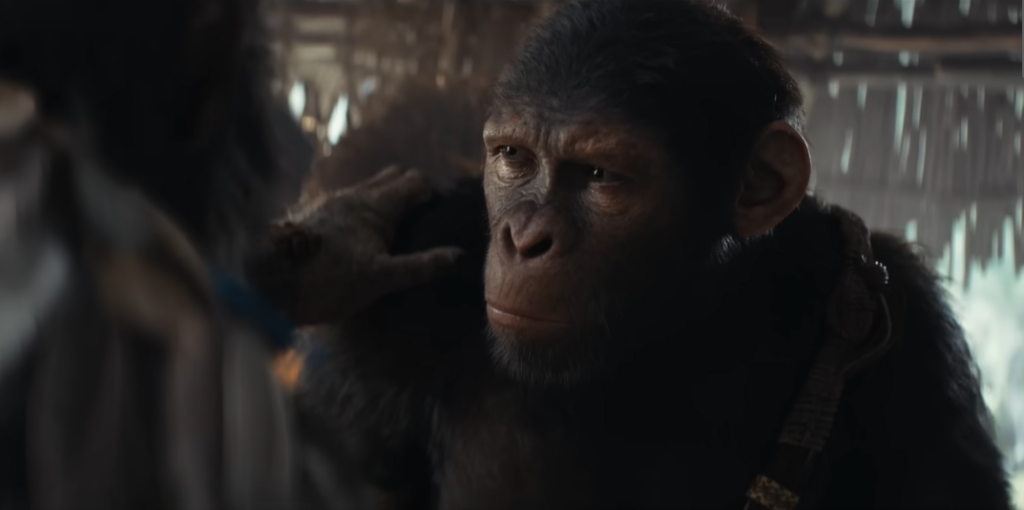
Humans, as mentioned above, are on the way out, but in my opinion it would be better to put them aside for good. It’s getting a bit redundant on the subject of cohabitation, and the apes deserve a film that focuses entirely on them and their civilisation. What about next time?
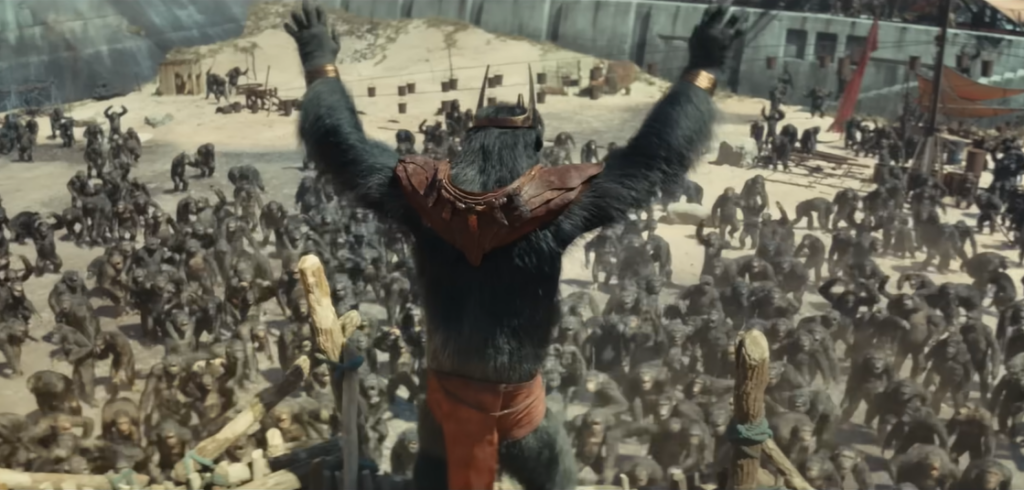
At the heart of the story is a reflection on transmission, memory and heritage, and a relevant loop effect. It’s almost meta: what should we do with Caesar’s teachings (the saga)?
It’s a pity, because the film’s narrative is a bit shaky, too slow at one point and too full of lore to take in at another, with an adaptation of the Bible here and the hero’s journey of initiation there, giving the whole thing the appearance of a thematic mishmash that isn’t always mastered. On the other hand, it does a great job of balancing action, tension, emotion and humour, and in that respect it’s a real success.
New chapter, new faces
Wes Ball (best known for the Labyrinth saga) does very well as director, with a clear, clean, beautiful film, including some very good shots. John Paesano’s score, on the other hand, is more mixed, failing to live up to Michael Giacchino’s standards; when the only track you remember is a cover version of the previous composer’s work, there’s something wrong…
I’ve already mentioned Owen Teague, but his sidekicks are also well acted.
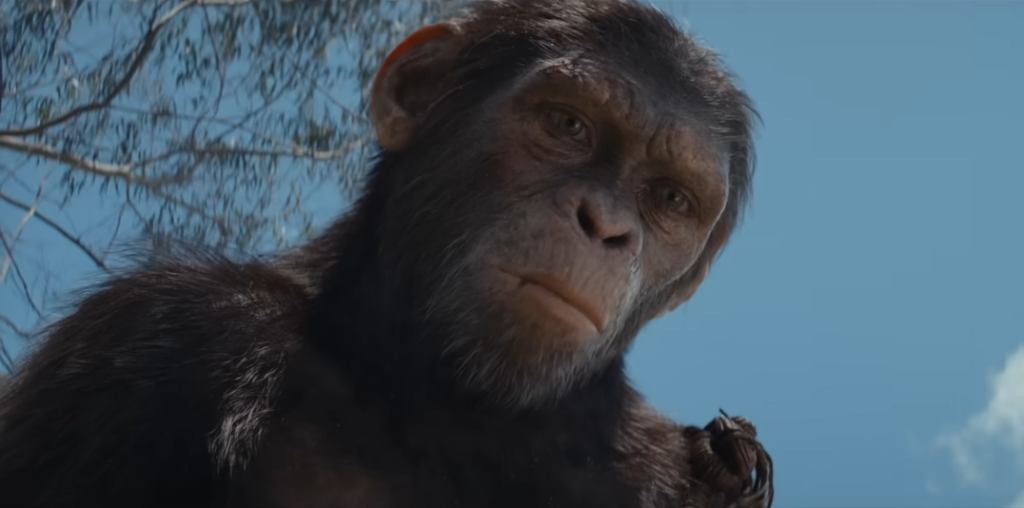
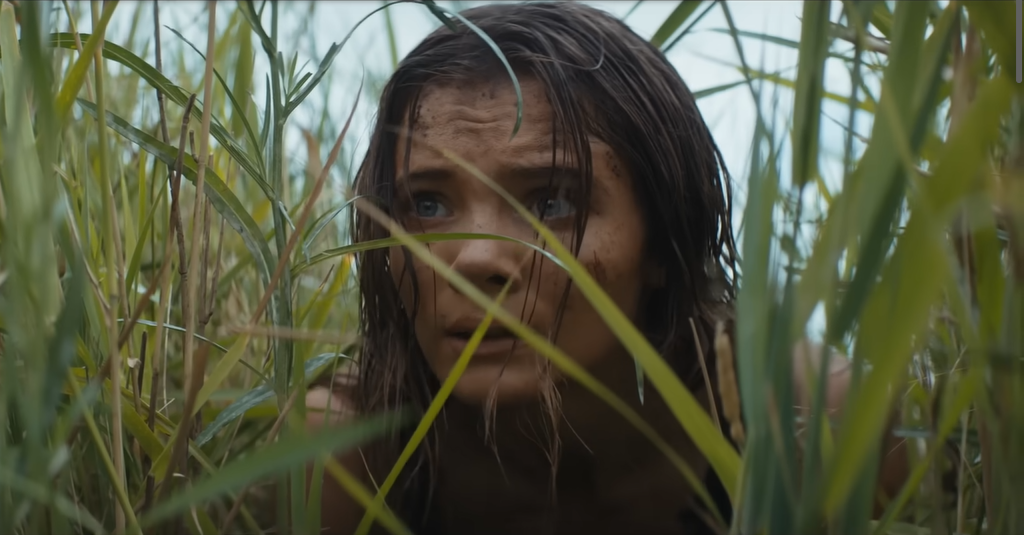
In conclusion, I had to revise my expectations, yet I came away satisfied, and even eager for a sequel, because I’m reassured about certain writing choices, especially around the main character, which take us inexorably towards 1968’s Planet Of The Apes. Without reaching the level of the previous trilogy, this Kingdom opens this new part with good cards in hand.

